There are two questions I want to address here. In a plural society, should it be incumbent on people to refrain from giving offence to other groups and cultures? And should it be incumbent on governments to legislate to ensure that free speech is...
CATEGORY: Magazine
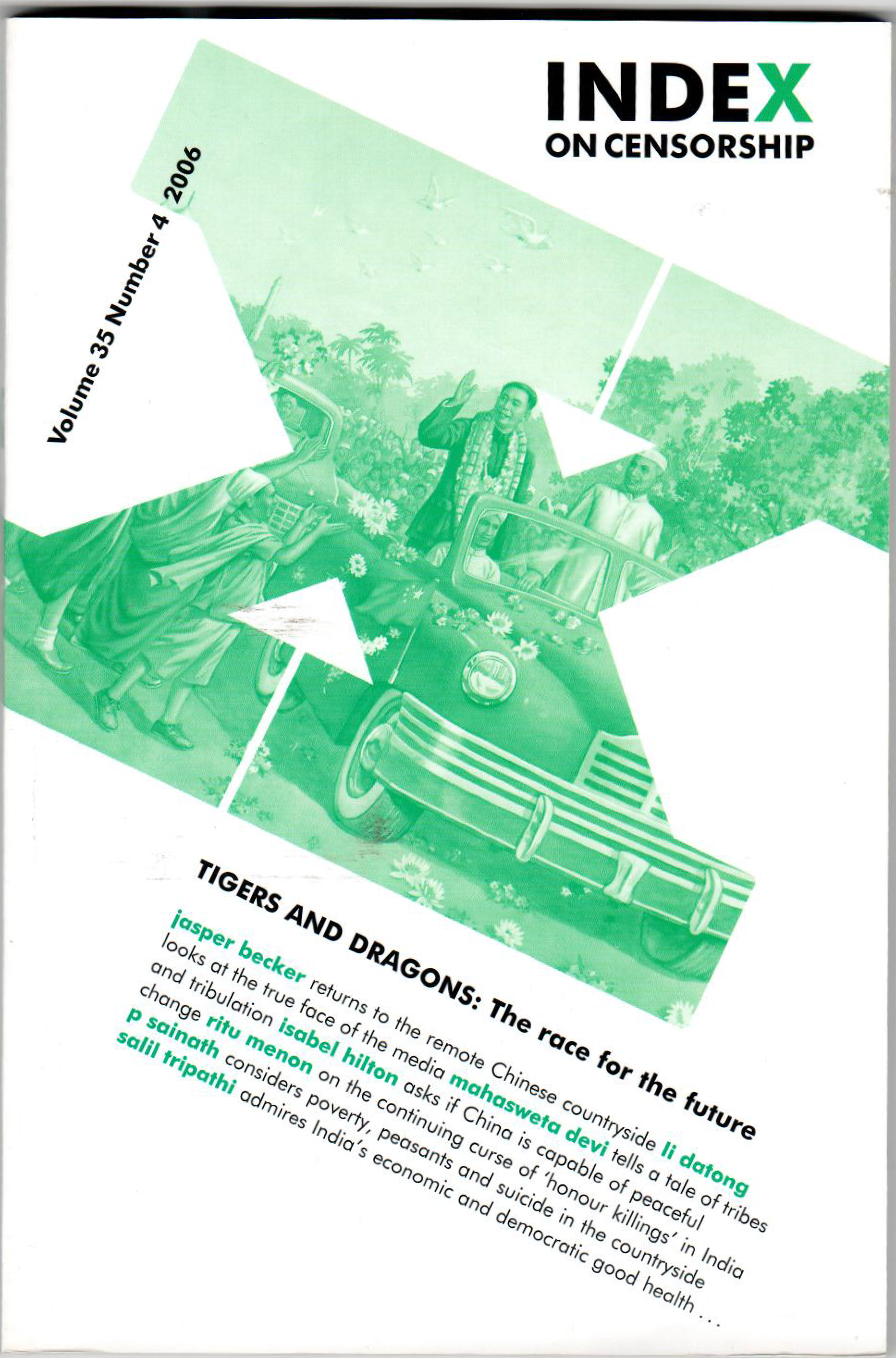
Tigers and dragons: The race for the future
Index explores China, economic superpower of the twenty-first century and a fast-tracking India. The race is on.
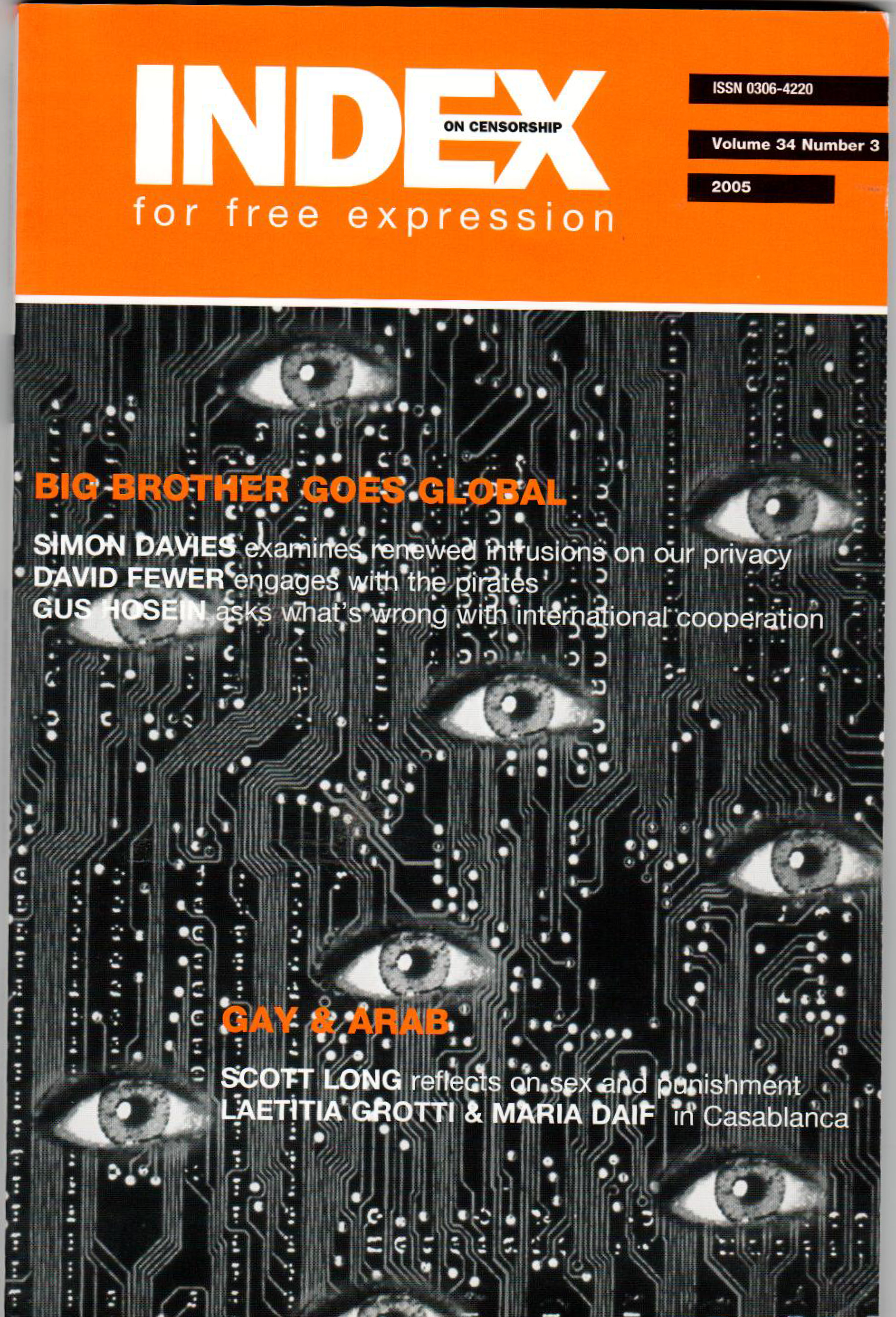
Big brother goes global
Index on Censorship magazine asks if the age of Big Brother has finally arrived on a scale unimagined except in our wildest dreams and nightmares.
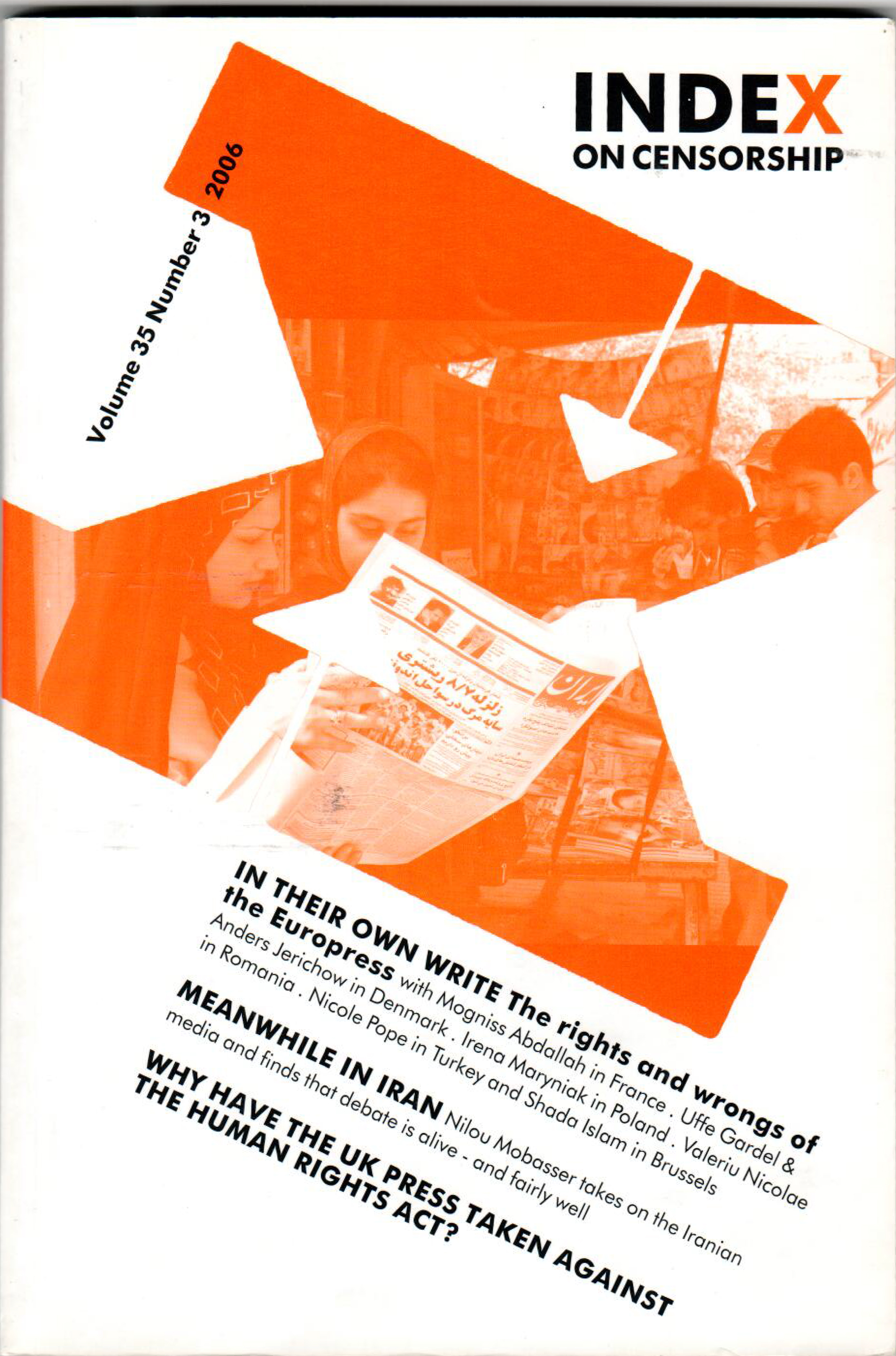
In their own write
Index on Censorship magazine takes a look at how the press in key countries deals with the hard issues that Europe confronts.
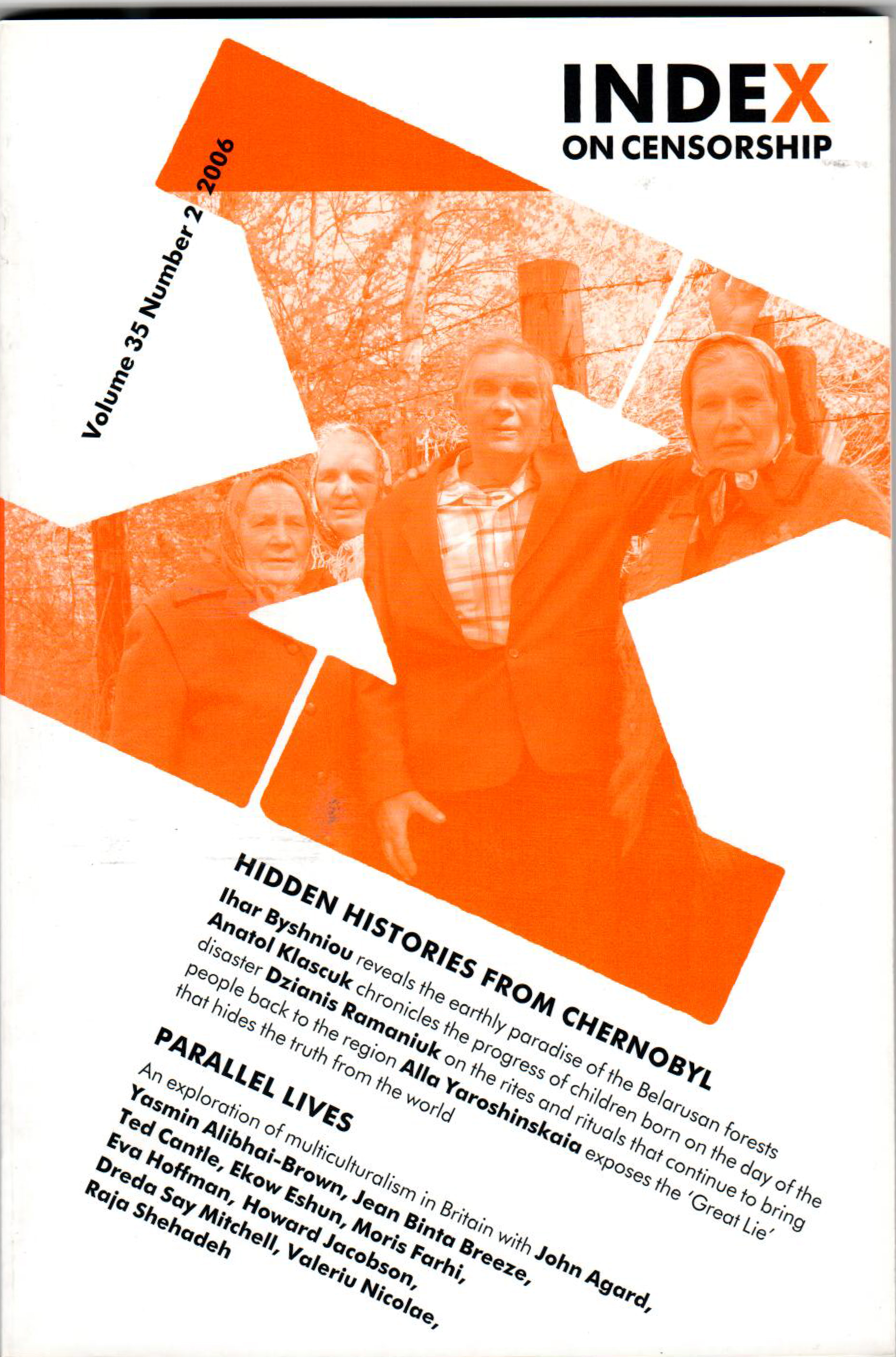
Hidden histories from Chernobyl
Index returns to Chernobyl to discover the hidden lives that have continued to inhabit the region devastated by the nuclear explosion of 1986
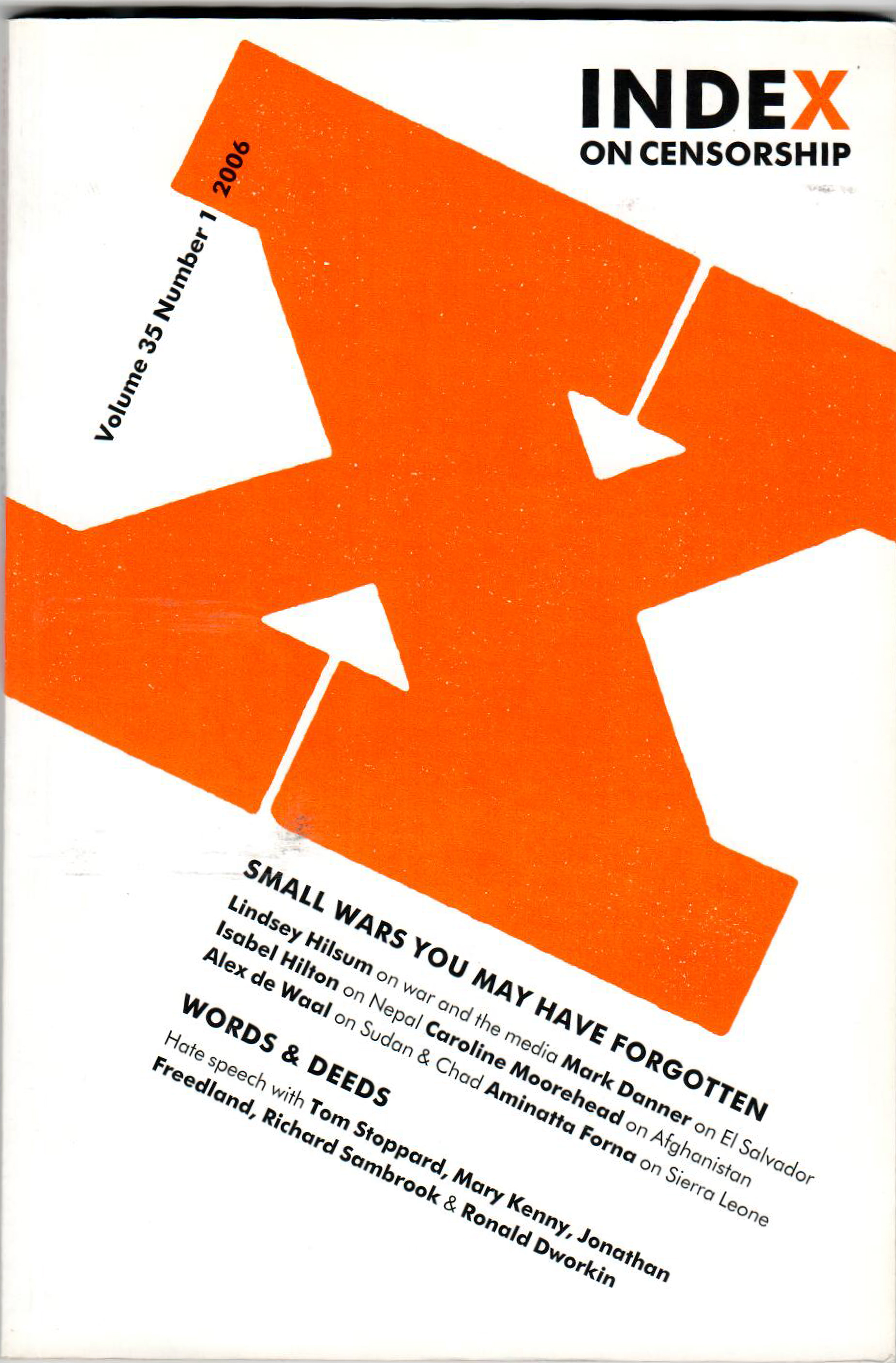
Small wars you may have forgotten
Index on Censorship magazine looks at some of the more recent wars to have invaded our screens and asks how they are now, the wars we have forgot.
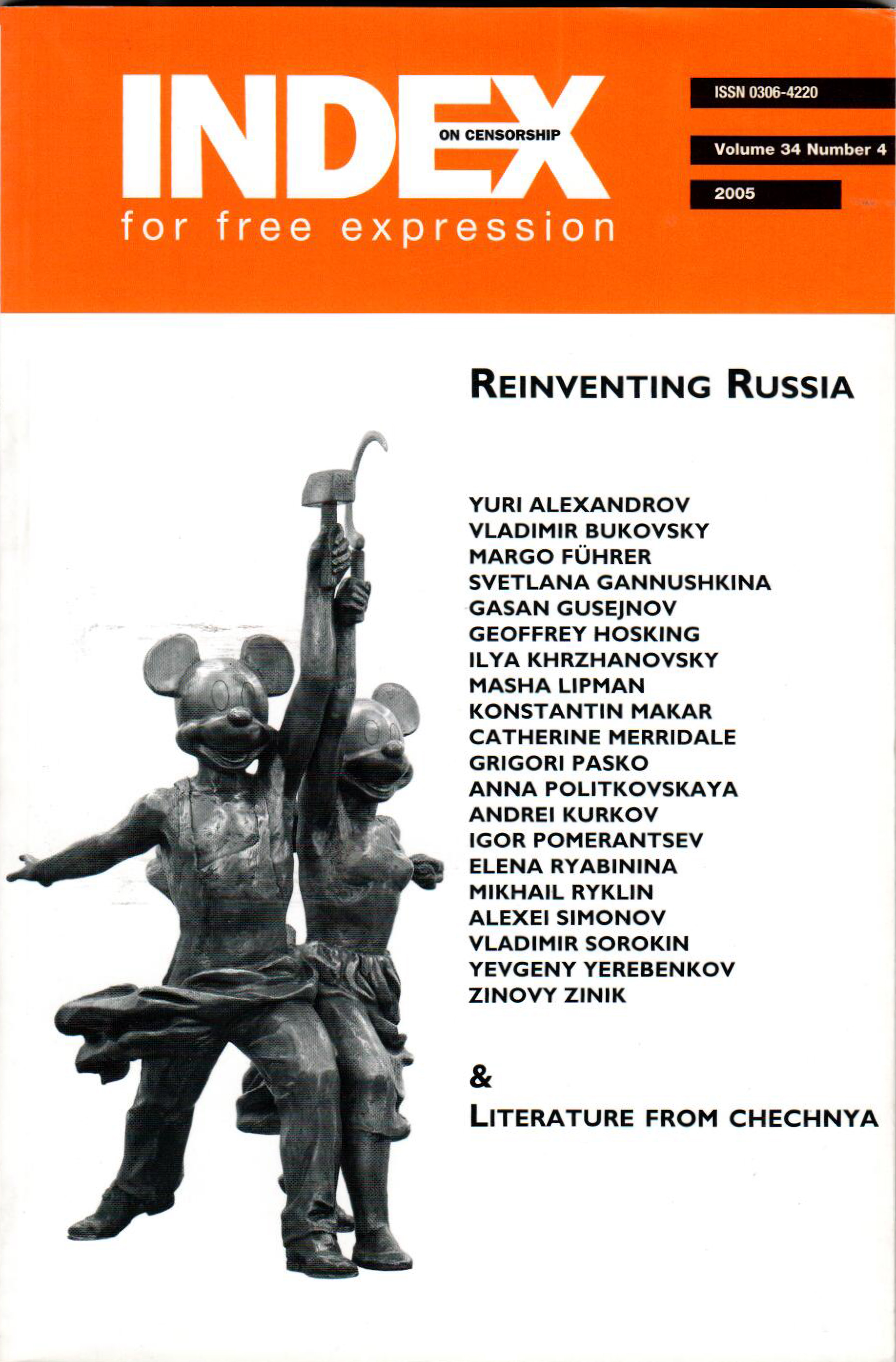
Reinventing Russia
Index asked intellectuals, writers and dissidents to explain Russia. Instead, they raised a raft of interesting questions about the country.
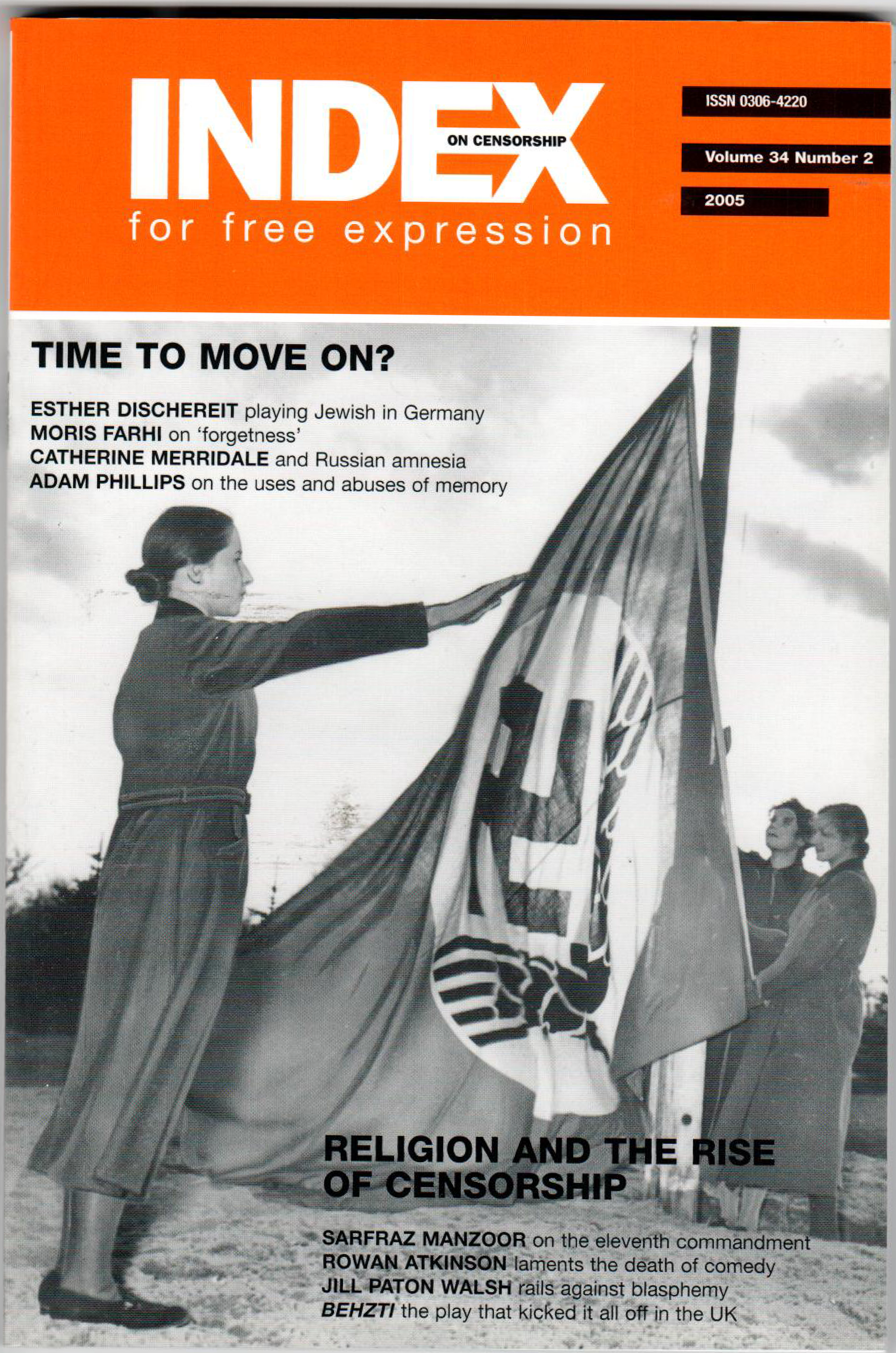
Time to move on?
Index on Censorship challenges the received wisdom: is it time to liberate Germany from the crippling burden of guilt? Do we have the courage to move on?
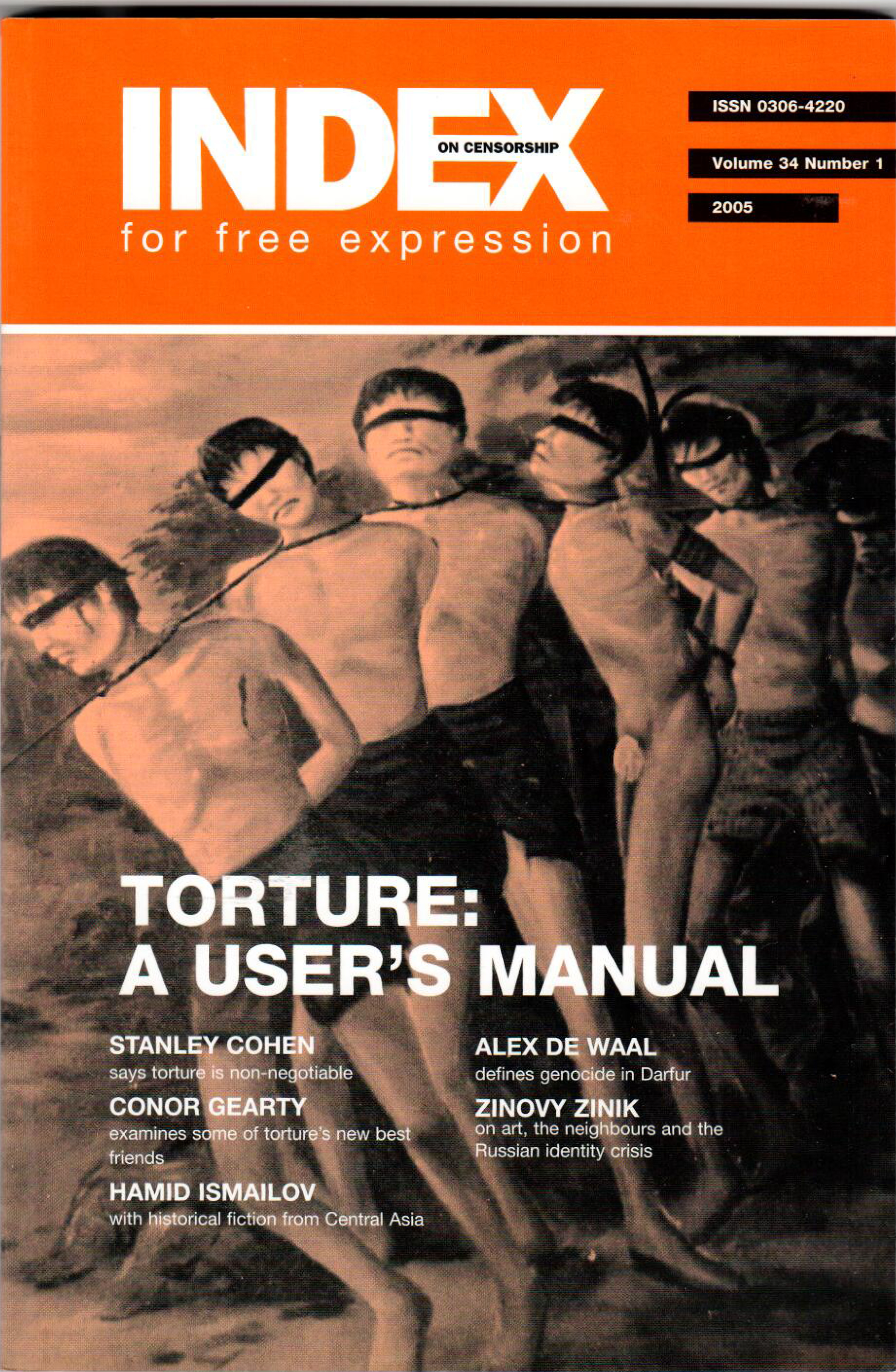
Torture: A user’s manual
Torture is back in fashion it seems; in the face of the terrorist threat, we are told, a little refined torture is a very good thing. Index argues: Thou shall not
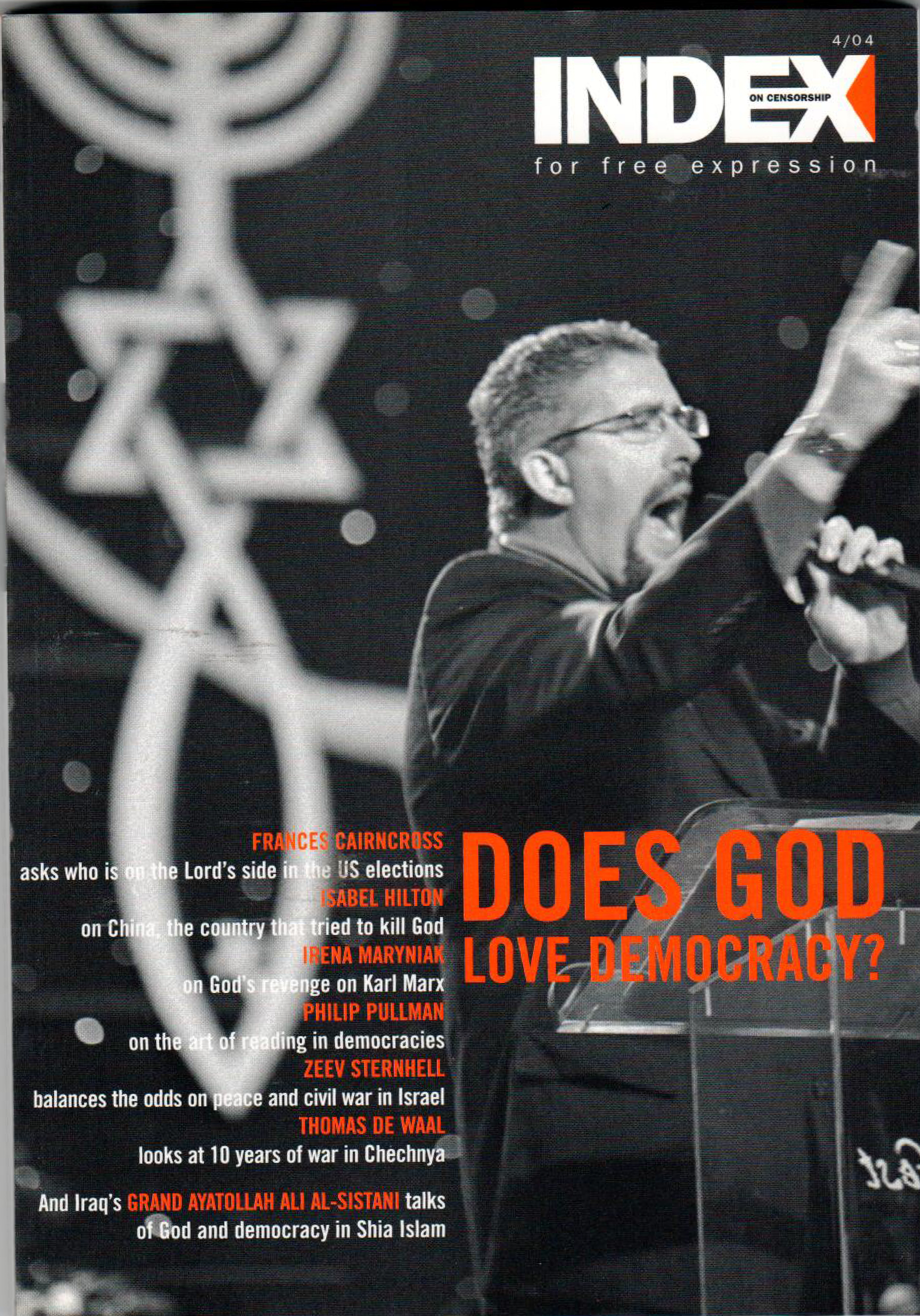
Does God love democracy?
More intimately than at any time since the Middle Ages, and from the USA to China, the world’s religions are back in the thick of politics. To what effect and with what consequences?
A quarterly journal set up in 1972, Index on Censorship magazine has published oppressed writers and refused to be silenced across hundreds of issues.
The brainchild of the poet Stephen Spender, and translator Michael Scammell, the magazine’s very first issue included a never-before-published poem, written while serving a sentence in a labour camp, by the Soviet dissident Aleksandr Solzhenitsyn, who went on to win a Nobel prize later that year.
The magazine continued to be a thorn in the side of Soviet censors, but its scope was far wider. From the beginning, Index declared its mission to stand up for free expression as a fundamental human right for people everywhere – it was particularly vocal in its coverage of the oppressive military regimes of southern Europe and Latin America but was also clear that freedom of expression was not only a problem in faraway dictatorships. The winter 1979 issue, for example, reported on a controversy in the United States in which the Public Broadcasting Service had heavily edited a documentary about racism in Britain and then gone to court attempting to prevent screenings of the original version. Learn more.

